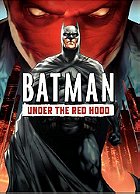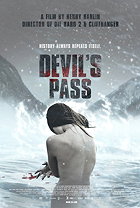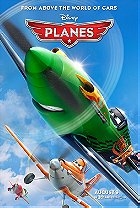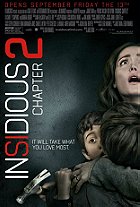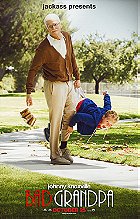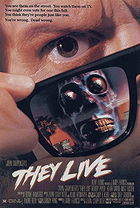Death Race: Inferno is the third instalment in producer Paul W.S. Anderson's contemporary Death Race franchise, and it's set right after Death Race 2 which was in fact a prequel to the original 2008 movie. Confused yet? While nobody will ever accuse Death Race or its prequel of being good movies, both were at least fun, maintaining a playful spirit and delivering all the carnage, cars, hot babes and big action scenes that a film called fucking Death Race should contain. But the charms of the franchise have utterly dried up with Death Race: Inferno, a follow-up so tedious and dull that it can't even reach the level of basic guilty pleasure. Even though the crew behind Death Race 2 made their return here, Inferno is a total clunker, with below-par technical credits and horrendous writing showing the movie for what it is: a cheap straight-to-video diversion.

Set sometime after the events of Death Race 2, Carl Lucas (Luke Goss) is only one more win away from earning his freedom on the Death Race circuit. Better known to the public as Frankenstein, Lucas is a fan favourite with viewers, and his popularity makes the Death Race broadcasts all the more profitable. The empire is soon taken over by Niles York (Dougray Scott), who seeks to up the ante by taking Death Race to the deserts of South Africa. Along with navigator Katrina (Tanit Phoenix) and his pit crew (Danny Trejo, Fred Koehler), Frankenstein hits the South African race tracks, versing an array of opponents in heavily armed vehicles. Making matters worse, Niles is not about to let his popular star player win another race and simply walk free.
One of the most bothersome aspects of Inferno emerges early into the story: Carl's deformities are "cured" via a medical procedure, leaving him with a mildly scarred but otherwise perfectly pretty face. Budget constraints likely forbade an entire movie featuring Goss in extensive make-up, or maybe the idea was influenced by other factors, but it's a huge leap in logic from which the picture never recovers. Worse, Inferno runs a considerable 105 minutes as opposed to something more easily digestible, leading to leaden pacing. Unfortunately, the length isn't earned through compelling drama or meticulous character development. The story is just unnecessarily convoluted, lingering on details that don't matter in the long run, and neglecting details that actually matter in the grand scheme of things (it's unclear how Niles got control of the operation since Ving Rhames' Weyland seems unwilling to let him get involved). Inferno also lacks the satire and goofy charm of its predecessors. Compounding all of this awfulness is the movie's disappointing cop-out of an ending, which more or less ruins the franchise.

Perhaps unsurprisingly, the dialogue in Tony Giglio's screenplay is tin-eared to extremes, with basically every line lifted out of The Action Genre Writer's Handbook. The actors don't help matters, clearly phoning in their performances for an easy paycheque. Goss is a total cardboard cut-out, while Trejo seems completely disinterested in the project and Rhames is barely awake. Scott is the only one who makes an effort, going for broke in an over-the-top, cheesy villainous role, and nailing the proper tone for this enterprise. Everyone else may as well be reading off cue cards - in fact, they probably were. It's particularly heartbreaking to see someone like Trejo being utterly wasted.
Death Race: Inferno walks and talks like a straight-to-video production; the score is intrusive and chintzy, the photography looks cheap (even though it was filmed with RED cameras), and the acting is rigid. Director Roel Reiné (12 Rounds: Reloaded, The Marine 2, The Scorpion King 3) was apparently working with a smaller budget than the sum allotted to the second movie, and Inferno's slipshod construction consequently reeks of cheap. The racing sequences are the bread and butter of this series, but Inferno fails to adequately deliver. While the cars themselves look nifty, the set-pieces are spoiled by rapid quick-cutting and herky-jerky cinematography, to the extent that it's impossible to tell what's happening at any given moment, and it may give some viewers a seizure. We are not given the chance to properly watch the carnage, as the footage is cut to shreds, lessening the intensity of the action sequences. Due to this, it's actually hard to figure out which driver is in which car at any given time, completely taking you out of the movie. Composer Paul Haslinger handled both the previous movies, but he was replaced here by the far less skilful Trevor Morris, who apparently does not understand subtlety. It sounds like the music was sourced from a bunch of royalty-free sites and haphazardly applied to any given scene.

It should not be difficult to produce a successful Death Race movie, but Inferno founders anyway, making its forerunners look positively immaculate in comparison. These films are made to provide exciting thrills and a fun time, but Inferno is marred by dull storytelling and an almost total lack of coherent action sequences. It's a shame, too, as the past two movies were great companion pieces, and a home run of a trilogy capper could've made this franchise a keeper.
3.8/10
 Login
Login
 Home
Home 183 Lists
183 Lists 1674 Reviews
1674 Reviews Collections
Collections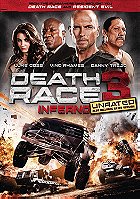
 0 comments,
0 comments, 